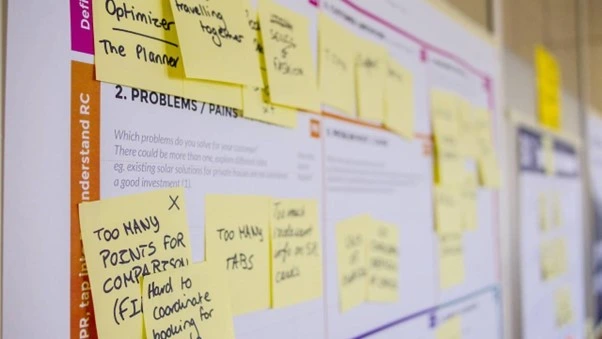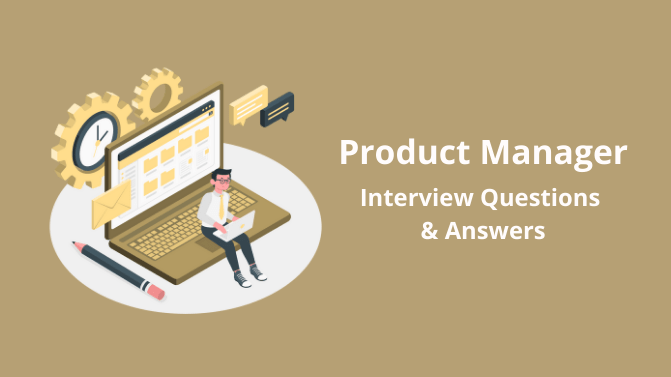Here’s What it Takes to Jump into a Product Management Role in 2023

Product management is a critical function for most companies. A great product manager has the ability to take an idea from the boardroom, develop it, and deliver an outstanding product in the market, while an incompetent one can jeopardise an organisation’s chance of delivering a great product and generating revenue.
As the Southeast Asia Tech Talent Compensation Report 2020/2021 notes, there exists a talent crunch regionally - particularly in Singapore - for engineering and product management roles.
The demand and growth potential for this role are huge. If you are considering pursuing a career in product management, there is no better time than now.
But, what exactly is product management? Who are product managers and what is their role in the organisation? What are the skills that are required of them?
What is Product Management and Why is it Important?
Put simply, product management refers to the creation of a product from scratch or the addition of more functionalities to an existing product. It involves both conducting market research and consumer behavioural studies, and engaging in proper project planning to ensure that consumers find value in your product.

However, creating the right product strategy and developing a killer product is not as easy as it sounds. In a highly competitive market, many product companies and start-ups struggle to do so and, by extension, survive.
As such, organisations require a specialised person or team who can make sense of customer needs, market research, data, and design to deliver a strategy for a killer product.
Often confused with Project Manager or Product Marketing Manager, the Product Manager is an entirely different role. A Project Manager’s role is to break down a project into tasks, plan, allocate and monitor those tasks.
Likewise, product management differs from product marketing as a Product Marketing Manager focuses on creating and maintaining an effective product market plan, while also monitoring and improving the product marketing performance.
A Product Manager, on the other hand, is more concerned with identifying the customer need and the larger business objectives that a product or feature will fulfil. A product manager also articulates what success looks like for the product and steers the team to achieve that vision.
What Do Product Managers Do?
Product Managers play a crucial role in developing a product from the early stages of ideation and development, to the later stages of delivering the product to the market and optimising it through a roadmap. With an increasing focus on customers’ needs, design, and data, product managers shoulder a significant amount of responsibility.

However, their specific role varies from organisation to organisation. For example, product managers in large organisations will collaborate with several internal teams to achieve their goals. While in smaller organisations, they often do all the hands-on work themselves.
However, every product manager needs to be good at the following tasks:
- Understanding and representing customer needs
- Conducting market research and competitive analysis
- Identifying and assessing the feasibility of product ideas and opportunities
- Defining and getting stakeholders on board with the product vision
- Planning product features and development strategy
- Executing the product’s roadmap
- Prioritising the product features and capabilities
- Ensuring timely product delivery
Why Should You Become a Product Manager?
A LinkedIn report shows that product management is among the top 25 in-demand jobs.
This will continue to be on the rise as the product management market globally is estimated to reach US$31.84 billion by 2025.
Apart from the high demand and compensation, product management can be a flexible and autonomous role. It is a fulfilling job that helps you grow professionally in the following ways:
- Huge Learning Curve: You will get to work with cross-functional teams such as engineering, design, data, business, sales, marketing, etc. This will help you enhance your domain knowledge and gain a diversity of experiences.
- Prepare for Leadership Roles: Collaborating and communicating with different teams and stakeholders, problem-solving, and decision-making will all help you to transition into being a great leader.
- Get better at Long-Term Visions: Product managers need to visualise how end-users will receive the product and how it will impact their life.
What are the Necessary Skills to Become a Product Manager?
Great product managers are always open to learning the latest technologies and agile methodologies that help them build better products and manage teams.
However, there is a minimum skill set that product managers need to have. Below are the top skills of 2022 that employers look for in a Product Manager:
1. Strategic Thinking
Product Managers must be capable of thinking strategically and structurally to brainstorm problems. They should have solutions to complex problems, and a vision to ensure that the product performs according to the goals of market standards.
2. Written and Oral Communication
Product managers communicate with internal and external stakeholders such as customers, the engineering team, designers, the marketing team, etc. Thus, they need to have exceptional verbal and written communication skills.

3. Empathy
Empathy refers to the ability to step into your customer’s shoes and understand their point of view. Product managers need to be empathetic to the customer’s needs to fully understand the problems that customers face. Only then will they be able to bring the optimal solution.
4. Collaboration
Product managers lead a product’s development and make decisions related to it. While they work with several teams to make the product a success, such as tech, UI/UX, and business and marketing teams, these teams are usually not required to report to the product manager directly as the product manager does not lead these teams.
Due to the highly cross-functional nature of work, a product manager needs great collaboration skills to guide other independent teams, align them with a product’s goals, and work with them seamlessly.
5. Technical
Product Managers are supposed to successfully determine the feasibility of a project goals by considering the company’s capabilities and constraints. Without the necessary level of IT expertise and experience, product managers will not be able to assess technical risks or correctly respond to queries from developers, programmers, analysts, and engineers. Hence, they should be technically proficient in areas such as development, design, prototyping, analytics, etc.
6. Attention to Detail
Delivering products and features, whether big or small, requires great attention to detail. To deliver a great product, good Product Managers take the time to fully flesh out every part of the product such as the placement and colour of icons, or designing an exhaustive customer journey map. This allows the team to deliver a well-designed product that has been thought through carefully.
7. Prioritisation
Product Managers have a lot of tasks on their plate. They need to master the art of prioritisation so that they know how to direct their time and energy in order to develop a product in a timely manner.
Conclusion
A Product Manager is expected to be skilled and knowledgeable in technology, design, business, as well marketing. It is an ever-evolving role that requires continuous learning.
Often people in roles such as Project Managers, Product Marketing Managers, designers, and marketers, transition into product management due to the overlapping and transferable skills and knowledge required.
If you possess some or most of these skills, transitioning to a career in product management can be easier for you regardless of your background.
Nonetheless, being open to continuous learning, enhancing your knowledge and skill set, and enjoying the journey is key to any successful career, even in product management.
Backend Technology Interview Questions
C Programming Language Interview Questions | PHP Interview Questions | .NET Core Interview Questions | NumPy Interview Questions | API Interview Questions | FastAPI Python Web Framework | Java Exception Handling Interview Questions | OOPs Interview Questions and Answers | Java Collections Interview Questions | System Design Interview Questions | Data Structure Concepts | Node.js Interview Questions | Django Interview Questions | React Interview Questions | Microservices Interview Questions | Key Backend Development Skills | Data Science Interview Questions | Python Interview Questions | Java Spring Framework Interview Questions | Spring Boot Interview Questions.
Frontend Technology Interview Questions
HTML Interview Questions | Angular Interview Questions | JavaScript Interview Questions | CSS Interview Questions.
Database Interview Questions
SQL Interview Questions | PostgreSQL Interview Questions | MongoDB Interview Questions | MySQL Interview Questions | DBMS Interview Questions.
Cloud Interview Questions
AWS Lambda Interview Questions | Azure Interview Questions | Cloud Computing Interview Questions | AWS Interview Questions.
Quality Assurance Interview Questions
Moving from Manual Testing to Automated Testing | Selenium Interview Questions | Automation Testing Interview Questions.
DevOps and Cyber Security Interview Questions
DevOps Interview Questions | How to Prevent Cyber Security Attacks | Guide to Ethical Hacking | Network Security Interview Questions.
Design Product Interview Questions
Product Manager Interview Questions | UX Designer Interview Questions.
Interview Preparation Tips
Strength and Weakness Interview Questions | I Accepted a Job Offer But Got Another Interview | Preparation Tips For the Virtual Technical Interview | 7 Tips to Improve Your GitHub Profile to Land a Job | Software Engineer Career Opportunities in Singapore | What can you expect during a whiteboard interview | How To Write A Resignation Letter | Recommendation Letter Templates and Tips.
Quick Links
Practice Skills | Best Tech Recruitment Agency in Singapore, India | Graduate Hiring | HackerTrail Litmus | Scout - Sourcing Top Tech Talent in ONE Minute | About HackerTrail | Careers | Job Openings.





